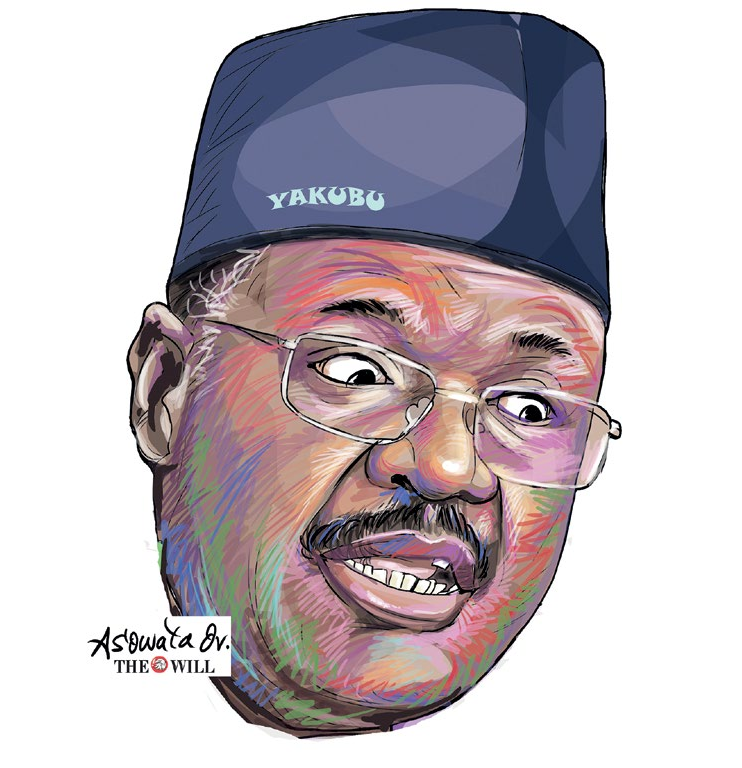October 06, (THEWILL) – The just concluded controversial Edo State Governorship Election has once again drawn attention to the significant and persistent issues surrounding Nigeria’s electoral processes. The Independent National Electoral Commission (INEC), which is tasked with overseeing these processes, has come under sharp criticism, with the election result sparking outrage amid allegations of rigging.
Monday Okpebholo, the All Progressives Congress (APC) candidate, was declared the winner with 291,667 votes, defeating the Peoples Democratic Party (PDP) candidate Asue Ighodalo, his closest challenger. However, this outcome has been rejected by many, including opposition parties and accredited election observers, due to allegations of manipulation, voter suppression and malpractices that mirror the issues of previous elections. This latest development raises critical questions about INEC’s ability to conduct transparent, credible elections and it presents a clear danger to Nigeria’s democratic process.
INEC’s role in the 2023 presidential election serves as a precedent for the issues seen in Edo. That election saw Bola Tinubu, the candidate of the APC, declared winner amidst similar allegations of rigging and manipulation, with opposition candidates Peter Obi of the Labour Party and Atiku Abubakar of the PDP both challenging the results all the way to the Supreme Court. They cited widespread irregularities, such as vote suppression, technical failures and delays in announcing results. At the heart of their grievances was the failure of INEC to effectively deploy its much-touted Bimodal Voter Accreditation System (BVAS) and the INEC Result Viewing Portal (IReV), which were designed to ensure transparency by transmitting real-time results. The systems either malfunctioned or were not used as promised, giving rise to suspicion of foul play. The justices however did not find merit in their appeal and upheld the victory of President Tinubu.
The 2023 presidential election should have been a lesson for INEC, a critical moment to review and improve its operations before subsequent elections, including the Edo governorship race. Unfortunately, the same issues have resurfaced, with voters and political parties alleging that the integrity of the election process had been compromised. Over-voting, failure to upload real-time results, and accusations of vote buying were common complaints. In particular, the disillusionment among voters in Edo has reached dangerous levels, with many now questioning the value of their Permanent Voter Cards (PVCs) and even threatening to destroy them in protest. The sentiment echoes the broader national discontent that followed the 2023 general elections.
Edo is not an isolated case, either. These challenges that plague our elections since Yakubu Mahmood became Chairman of the electoral commission reveal a systemic problem that threatens the very foundation of Nigeria’s democracy. The failure of INEC to effectively address the technological and procedural shortcomings in its operations, despite numerous promises to do so, has contributed to a steady decline in public trust. This mistrust is fuelling voter apathy, particularly among younger voters who see little incentive to participate in a system they view as inherently flawed. This is saddening.
Voter apathy is a growing problem that has significant implications for the legitimacy of Nigeria’s democratic institutions. In the Edo governorship election, voter turnout was abysmally low, despite INEC’s promises of a more transparent process.
The disconnect between the promises made by INEC and the realities on the ground has created an environment where many Nigerians feel that their votes do not count. This sentiment, if not addressed, will continue to undermine the credibility of future elections with even lower voter participation.
The core of the problem lies in INEC’s inability to ensure that the results of elections reflect the true will of the people. The failure to count and report votes accurately and transparently create an environment in which political elites can manipulate the system to their advantage, often leaving the courts to determine election outcomes.
The reliance on judicial intervention to settle electoral disputes, rather than transparent vote counts, undermines the democratic principle that elections should be decided by the electorate, not by the courts. This pattern was evident in the 2023 presidential election, where the opposition candidates took their grievances to court, contesting the results because of alleged irregularities and rigging. The judiciary, rather than the ballot box, became the final arbiter of the election, eroding the public’s faith in democracy.
In Edo, the same scenario is playing out, with opposition parties rejecting the results and calling for legal redress. This reliance on legal battles to settle election outcomes is a symptom of a deeper malaise within the electoral system, where INEC’s failure to guarantee free, fair and transparent elections creates the conditions for perpetual contestation. This not only weakens democracy but also places undue strain on the judiciary, which is forced to mediate political disputes that should be resolved through the ballot box.
INEC’s credibility is hanging by a thread and the continued failures in electoral management under its current leadership are a significant cause for concern. Let me repeat this again for emphasis, Mahmood Yakubu, is at the centre of this crisis. His legacy at the commission will be defined by whether he can address the systemic flaws that have undermined the integrity of Nigeria’s elections under his reign.
Yakubu has overseen two major national elections — the 2019 and 2023 general elections — both of which were riddled with serious irregularities and allegations of rigging. His tenure has been marked by promises of reform, particularly with the introduction of BVAS and IReV, but these technologies have failed to deliver the transparency and credibility that were promised.
Some should help me remind Yakubu that his legacy will ultimately be judged by whether he can restore public confidence in INEC and ensure that votes cast in future elections are counted and reported accurately. If he fails to do so, his tenure will be remembered as a period of deepening mistrust in Nigeria’s electoral system, a time when elections were decided not by the people but by those who can buy INEC officials and votes.
The stakes could not be higher. Nigeria is at a critical juncture and the credibility of its democratic process is in serious jeopardy. If INEC continues to falter in its responsibilities, voter apathy will continue to rise, and the legitimacy of elected officials will be further eroded. This will only serve to strengthen the hands of those who seek to undermine democracy for their own gain. For Nigeria’s democracy to survive and thrive, INEC and Yakubu must step up and fulfil its mandate to conduct free, fair, and transparent elections.
The 2024 Edo governorship election is a clear indication that INEC’s problems are far from over. The widespread allegations of rigging, voter suppression, and the manipulation of results are not new, but they are becoming increasingly worrisome.
It is therefore crucial that Yakubu and INEC act promptly to restore public confidence. This means making the necessary changes to ensure that elections are truly reflective of the will of the people.







